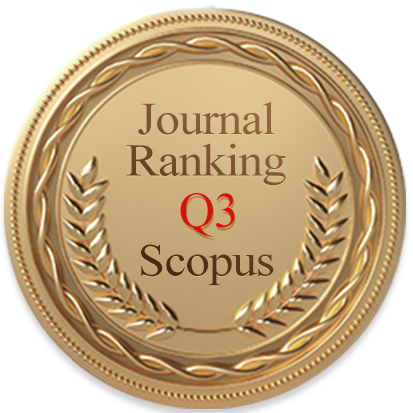
The International Journal of Environmental Impacts (IJEI) is a leading peer-reviewed scholarly journal dedicated to examining the complex interactions between human development and the natural environment. It distinguishes itself by integrating insights from environmental science, engineering, economics, and public policy to address the challenges of environmental change. The journal advances research on pollution control, waste management, ecosystem restoration, and sustainable resource governance, promoting evidence-based solutions that connect scientific innovation with policy implementation. IJEI is published bimonthly by Acadlore, releasing six issues per year in February, April, June, August, October, and December.
Professional Editorial Standards - Every submission undergoes a rigorous and well-structured peer-review and editorial process, ensuring integrity, fairness, and adherence to the highest publication standards.
Efficient Publication - Streamlined review, editing, and production workflows enable the timely publication of accepted articles while ensuring scientific quality and reliability.
Open Access - All articles are freely and immediately accessible worldwide, maximising visibility, dissemination, and research impact.
The International Journal of Environmental Impacts (IJEI) is a leading peer-reviewed scholarly journal dedicated to examining the complex interactions between human development and the natural environment. It distinguishes itself by integrating insights from environmental science, engineering, economics, and public policy to address the challenges of environmental change. The journal advances research on pollution control, waste management, ecosystem restoration, and sustainable resource governance, promoting evidence-based solutions that connect scientific innovation with policy implementation. IJEI is published bimonthly by Acadlore, releasing six issues per year in February, April, June, August, October, and December.
Professional Editorial Standards - Every submission undergoes a rigorous and well-structured peer-review and editorial process, ensuring integrity, fairness, and adherence to the highest publication standards.
Efficient Publication - Streamlined review, editing, and production workflows enable the timely publication of accepted articles while ensuring scientific quality and reliability.
Open Access - All articles are freely and immediately accessible worldwide, maximising visibility, dissemination, and research impact.

Aims & Scope
Aims
The International Journal of Environmental Impacts (IJEI) serves as a global platform for advancing knowledge on the interconnections between human activities, environmental degradation, and sustainable development. Its primary mission is to foster cross-disciplinary scholarship and dialogue that address how environmental impacts can be scientifically assessed, effectively managed, and mitigated to ensure long-term ecological and societal well-being.
IJEI is dedicated to integrating perspectives from the natural sciences, engineering, economics, and social sciences to confront the most pressing environmental challenges of our time. The journal encourages studies that critically examine the balance between economic development and environmental protection, proposing evidence-based strategies to achieve sustainability amid rapid industrialisation, urbanisation, and climate change.
Through original research, policy analysis, and real-world case studies, IJEI promotes actionable knowledge that informs both scientific understanding and environmental governance. The journal prioritises contributions that bridge theory and practice, highlighting technological, managerial, and policy innovations that reduce contamination, restore ecosystems, and protect public health.
Key features of IJEI include:
A strong emphasis on interdisciplinary research connecting science, technology, and policy;
A focus on global environmental challenges and their local implications;
Encouragement of research that translates scientific understanding into practical solutions for sustainability and resilience;
Promotion of innovations that advance environmental assessment, restoration, and circular economy practices;
A commitment to integrating academic insight with policy relevance and societal benefit.
Scope
The International Journal of Environmental Impacts (IJEI) encompasses a broad spectrum of research addressing the causes, assessment, management, and mitigation of environmental change. The journal welcomes interdisciplinary contributions that integrate natural sciences, engineering, social sciences, and policy studies to generate actionable insights into global environmental challenges. Areas of interest include, but are not limited to:
Environmental Assessment and Policy Integration
Research focusing on innovative methodologies for environmental impact assessment, strategic environmental planning, and the integration of environmental considerations into public and private decision-making. Topics include sustainability appraisal, policy design, legal frameworks, and governance models that enhance environmental resilience.
Pollution Control, Contamination, and Toxicity
Studies examining the mechanisms, impacts, and mitigation of air, water, and soil pollution from industrial, agricultural, and urban sources. This area includes pollutant transport modelling, toxicity testing, risk assessment, and the development of advanced monitoring and abatement technologies.
Climate Change, Adaptation, and Resilience
Comprehensive analyses of the physical, ecological, and socio-economic impacts of climate change, emphasising adaptive strategies for communities, infrastructure, and ecosystems. Submissions may include climate modelling, carbon footprint evaluation, disaster preparedness, and low-carbon development pathways.
Waste Management and Circular Economy
Explorations of waste generation, treatment, and valorisation practices across industrial, agricultural, and municipal sectors. IJEI particularly welcomes studies on circular economy frameworks, life-cycle analysis, waste-to-energy technologies, and innovative resource recovery systems.
Water Resources and Marine Systems
Advanced research on the sustainable use, conservation, and management of freshwater and marine environments. Topics include watershed management, groundwater contamination, desalination and reuse, marine pollution, and integrated coastal zone management.
Ecosystem Protection and Biodiversity Conservation
Research addressing the preservation, restoration, and modelling of ecosystems under anthropogenic stress. This area includes biodiversity conservation, ecosystem service valuation, reforestation, soil conservation, and nature-based solutions to enhance ecological stability.
Energy, Industry, and Environmental Systems
Studies examining the environmental implications of industrial activities and energy production. Areas of focus include renewable energy integration, cleaner production, energy efficiency improvement, and emission reduction technologies for sustainable industrial transitions.
Urbanisation, Infrastructure, and Transportation Impacts
Investigations into the environmental consequences of urban growth, infrastructure development, and transportation systems. Topics include sustainable mobility, urban air quality management, heat island mitigation, smart infrastructure, and green urban design.
Environmental Health, Safety, and Society
Interdisciplinary studies linking environmental quality with public health, safety, and socio-economic development. Research includes exposure assessment, pollution-related diseases, sanitation systems, community resilience, and the social justice dimensions of environmental protection.
Remediation, Recovery, and Environmental Technologies
Research on physical, chemical, and biological remediation techniques for contaminated environments. Topics cover soil and groundwater remediation, industrial waste detoxification, ecological restoration, and the use of advanced materials and nanotechnology in pollution control.
Sustainability Transitions and Environmental Governance
Analyses of institutional, behavioural, and economic drivers of sustainability transitions. This area includes studies on environmental economics, corporate responsibility, sustainability reporting, and participatory governance frameworks for informed decision-making.
Case Studies and Regional Practices
Empirical and applied studies documenting real-world experiences in managing environmental crises or implementing innovative solutions. IJEI values practical insights from local, regional, and international contexts that demonstrate transferable lessons and best practices in environmental management.

Abstract

Abstract

Abstract

Abstract

Abstract

Abstract

Abstract

Abstract

Abstract








